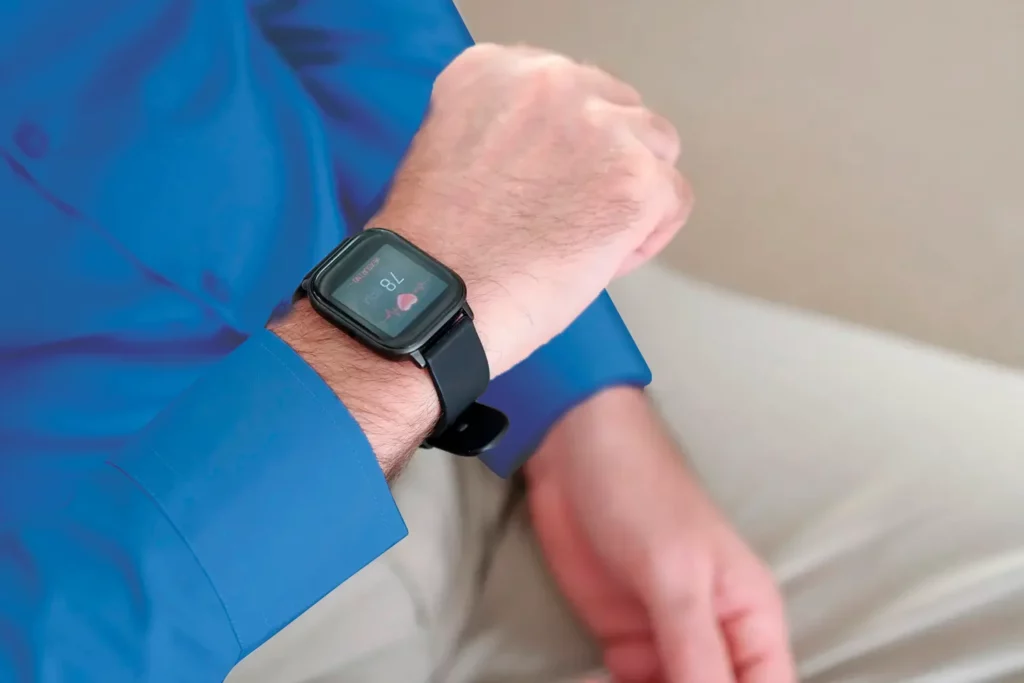Tachycardia refers to the condition where the heart rate exceeds 100 beats per minute, and it can arise from various causes. Experiencing tachycardia may trigger a range of sensations in a person.
Although experiencing tachycardia in isolation is not necessarily a sign of something serious, if it occurs persistently or with certain characteristics, it is important to seek specialized medical attention.
What Causes Tachycardia?
Tachycardia — including ventricular tachycardia, which originates in the lower chambers of the heart (the ventricles) — may result from both medical complications and everyday situations.
On one hand, there is stress and anxiety, which can cause a temporary increase in heart rate, as well as the consumption of caffeine or other stimulants.
Another activity that can cause an intense heart rate is engaging in high-intensity exercise.
But beyond these temporary and mostly self-induced situations, some additional causes pose greater risks to the individual, such as:
- Severe anemia: Low red blood cell levels mean the heart must work harder to supply oxygen, raising heart rate.
- Fever: Can naturally increase heart rate as the body responds to higher temperature.
- Hyperthyroidism: An overactive thyroid may elevate heart rate.
- Electrolyte imbalances: Abnormal magnesium or potassium levels can disrupt cardiac function.
- Medical conditions: Such as coronary artery disease or heart failure.
- Heart rhythm disorders: Like atrial fibrillation or sick sinus syndrome.
Regardless of the cause, recurring or persistent tachycardia should be assessed by a medical professional to determine its source and provide proper treatment.
Symptoms of Tachycardia
Beyond a noticeably fast heartbeat (over 100 bpm), a person may experience:
- Chest pain or discomfort (angina)
- Fainting
- Shortness of breath
- Dizziness
- Vertigo
These symptoms may appear occasionally, and sometimes the person may not feel any at all. Episodes may be brief or extended, sudden or sporadic.
How to Treat Tachycardia
To stop or manage tachycardia, it is essential to identify its cause and severity.
Possible treatment options include: Stress and anxiety management through relaxation techniques or therapy
Medications prescribed to help control the heart rate and restore normal rhythm
Electrical cardioversion for persistent cases, using a controlled electric shock to reset the heart rhythm
Catheter ablation for supraventricular tachycardia, where a catheter is inserted to destroy abnormal cardiac tissue causing the arrhythmia
Pacemaker implantation for rhythm disorders
Regardless of the treatment, it is essential to address the underlying cause to prevent recurrence.
A medical professional must always determine the appropriate treatment plan to ensure safety and effectiveness.
Is Tachycardia Dangerous?
Whether tachycardia is dangerous depends on several factors.
For example, tachycardia triggered by exercise in an otherwise healthy person is typically not dangerous.
But for someone with an underlying heart condition, the same level of exertion may pose a significant health risk.
This means that transient tachycardia, which is not associated with other health problems, does not pose an immediate danger.
However, tachycardia lasting more than 30 seconds after exercise or emotional stress, or recurring episodes, could signal something more serious.
A prolonged tachycardia increases the risk of fainting, dizziness, chest pain, heart failure, stroke, blood clot formation, and other serious events; and if not treated appropriately and promptly, it can cause the heart to experience excessive stress, resulting in potential long-term damage to the organ.
If tachycardia lasts longer than expected or becomes frequent, it is essential to seek specialized care, either from a primary care physician or a cardiologist. Prompt evaluation can lead to an accurate diagnosis and improve health outcomes.
At the ABC Medical Center’s Arrhythmia Clinic, we can provide you with specialized care for tachycardia.
Contact us if you’re experiencing symptoms!
Fuentes:
MedlinePlus, MSD Manuals, Cigna



